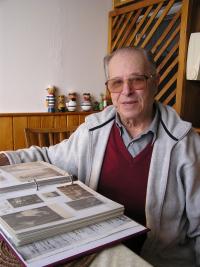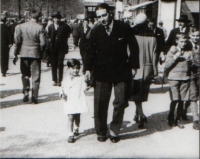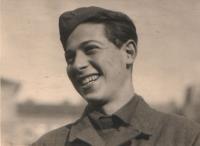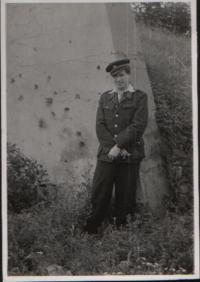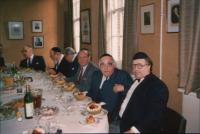The number 170464 was tattooed on my forearm. In fact it meant we were not going straight to the gas chamber

Download image
František Kraus was born on 6th October in 1925 in Prague in a Jewish family. After his whole family successively disappeared in transports during the year 1942, he himself was sent to Terezina in August 1942. There he had spent more than a year, before he was transported to Auschwitz in December 1943 as a punishment. In Auschwitz Kraus survived till the spring of 1944 in a ‘family camp’. Then he has luckily passed trough a selection and was sent to Reich, where he worked in a synthetic gasoline factory in Schwarzheide. In April 1945 Krause managed to survive the death march and he returned to Terezin. In years 1948-49 Kraus fought in Izrael as a volunteer. After he had returned to Czechoslovakia he was arrested for alleged spying in 1952 and sentenced for 22 years in labor camps. He have served his sentence mostly in the camp Nikolaj in Jachymov area. In 1959 Kraus agreed to become a secret agent of the State Security and was prematurely released from prison. As agent he have served next 30 years. In 1986 he became the Secretary of Jewish Religious Communites Council.
